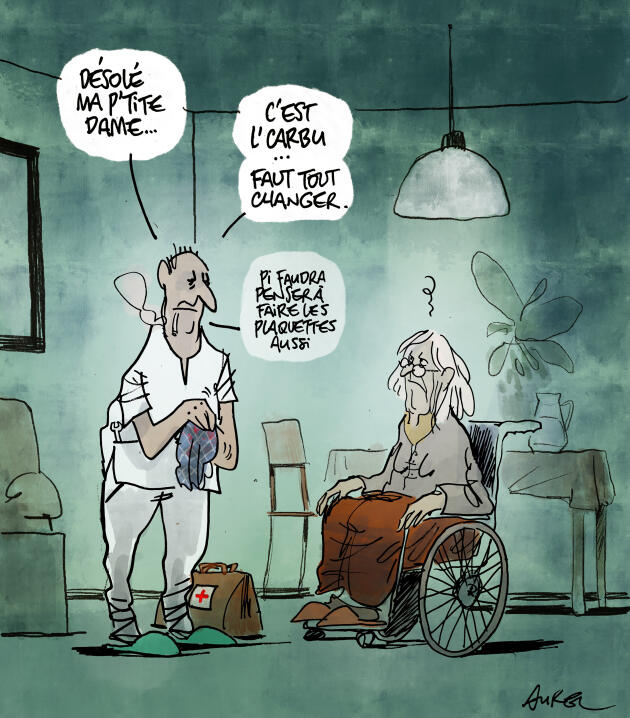Often, with nurses, it’s not much. This means applying a simple dressing to a wound, and declaring a complex dressing, with wicking or irrigation: 12.60 euros, instead of 6.30 euros. This means counting an intravenous injection (6.30 euros) while we performed an intramuscular injection (3.15 euros). This means charging a few euros to prepare the pill box and take blood pressure, even though these actions are included in the routine visit, paid 7.95 euros per half hour.
It’s going to a patient on Sunday who could very well have waited until Monday: 8.50 euros extra. This is cheating a little on the timetable for a night visit, because the nighttime increase is greater after 11 p.m. (18.30 euros) than before (9.15 euros). These are a few kilometers added to the meter to increase the travel allowance: 0.35 euros per kilometer in the plains, 0.50 euros in the mountains. A nurse easily drives 20,000 kilometers per year for his rounds, who will realize that he has declared 500 too many?
There nomenclature of acts that nurses must declare to Health Insurance is a gas factory made up of hundreds of ratings, which are all opportunities to make mistakes, so some, beginners or forgetful, sometimes check the wrong box without knowing it. But these hundreds of odds are also, for those who master them, so many opportunities to cheat. “You never suspect a nursenotes a Health Insurance lawyer who wishes to remain anonymous. People are so happy to have someone come and put compression stockings on them or redo a bandage. »
Which patient will note that a nurse who came for a “short infusion under continuous monitoring” (28.35 euros) declared, in addition, a “stopping and removal of an infusion device” (15.75 euros), normally reserved for long infusions, since stopping and removing the device are included in the short infusion package? Who will point out that a nurse violated article 11B of the nomenclature by charging at full rate for the dressings he made to both legs of a patient, when he should have quoted the second at only 50%?
Dizzying sums
For the patient, the matter is painless. If he has advanced the costs, Health Insurance will reimburse him. Very often, this is no longer even necessary: with the principle of third-party payment, which is followed by a large majority of nursing care today, the patient advances nothing: he hands over his Vitale card; the nurse inserts it into his reader and teletransmits the actions carried out; Medicare pays for it. The system is based on trust, the organization’s controls essentially intervene a posteriori, with uncertain effectiveness, as highlighted, in 2020, by unflattering reports from the Court of Auditors and the National Assembly.
You have 82.25% of this article left to read. The rest is reserved for subscribers.
